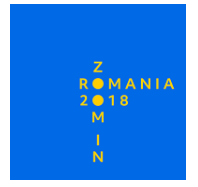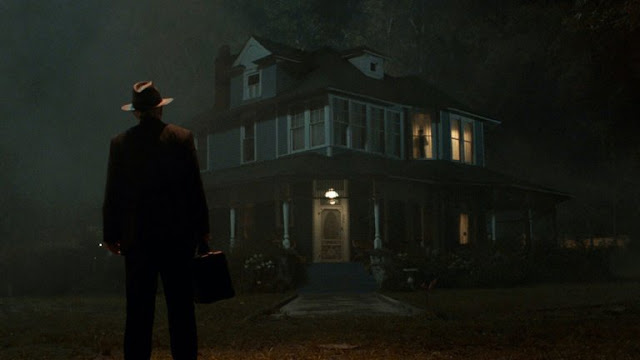Romania – Guest of Honour at the Leipzig Book Fair 2018

During the pre-press conference of the Leipzig Book Fair (15-18/03/2018), Luminiţa Corneanu from the Romanian Ministry of Culture and Book Fair Director Oliver Zille presented the program of the guest country 2018: around 50 Romanian authors and artists expects to attend the book fair in Leipzig, present their new publications and discuss perspectives on their country, its history and the current socio-political situation.
Romania, a member of the EU for 11 years, is a country with French and German characteristics as well as oriental influences, with an eastern orthodox Christianity but with a Latin-based language. “Located on the border of Europe, Romania is a country of geopolitical ambivalence”, says Andrei Pleşu, writer, philosopher and former foreign minister. “Looking to the west, it always feels easterly, facing the east it feels western. This intermediate position holds uncertainties, but also the privilege of building bridges between East and West.”
“The Guest of Honour 2018, Romania, gives us a special look at Europe, and the history and presence of this country, with its diverse ethnic groups, languages and religious communities, it can provide ideas for new perspectives for a common European future. I look forward to inspiring encounters”, says book fair director Oliver Zille.
Luminiţa Corneanu, Head of the Department of Literature at the Romanian Ministry of Culture, emphasizes: “New translations and anthologies of contemporary literature from Romania offer the opportunity to meet some of the most interesting contemporary Romanian authors, anyone who is curious about getting to know Romania beyond clichés and to learn more about the historical development of this country in the 20th century, it will be enriching to visit the Romanian stand and our events in Leipzig - not least, as a reader, you will learn something about yourself, because nothing embodies our common European identity so clearly like literature.”
Around 50 internationally known Romanian authors appear in Leipzig, including the Leipzig book prize winner Mircea Cǎrtǎrescu, nobel prize winner Herta Müller, Romanian writer Norman Manea living in the United States, and Andrei Pleşu. The poet Nora Iuga, the Berlin based Carmen Francesca Banciu and from Switzerland Cătălin Dorian Florescu and Dana Grigorcea will be coming to Leipzig. Cătălin Mihuleac presents his new novel, whose translation by Ernest Wichner has been nominated for the Leipziger Übersetzerpreis. Emil Hurezeanu, poet and Romanian ambassador in Germany, as well as Filip Florian, who has already translated several times into German, as well as Florin Lăzărescu, is also known as a scriptwriter and organizer of the great Romanian literature festival FILIT. Romanian-born author Gabriela Adameşteanu comes to Leipzig, as well as the poet and leading political activist Mircea Dinescu and author and politician Varujan Vosganian.
With more than 70 events and the presentation of 40 new translations funded by the Romanian Cultural Institute, the guest land in Leipzig wants to convey a vivid picture of Romania’s contemporary cultural scene and open doors to Romanian literature. In addition to readings, talks, photo exhibitions and musical performances, another focus is dedicated to Romanian film, which is perceived as an outstanding innovation in European film art worldwide: funded by the Romanian Ministry of Culture and the Romanian Cultural Institute in cooperation with the Traduki network, UT Connewitz organizes six Romanian film days.
Readings, Discussions and Balkan rock
During the Leipzig Book Fair more than 70 Romanian events are planned in the fair and in the city center of Leipzig. The central venue for the book fair is the new Romanian stand in Hall 4, E501, spectacularly designed by the well known architect Attila Kim, who is also responsible for the Romanian presence at the Venice Art and Architecture Biennale. He places the Romanian stand at the Leipzig Book Fair as an amphitheater, which covers an area of 300 square meters. The focus is on the event room, the stage, around which exhibitions, a bookstore and an information point are grouped. On Thursday of the fair, 11 am, the stand will be opened by the Romanian Minister of Culture. There will be premiere readings from the new Romanian books and discussions on four days of the fair. On Thursday Gabriela Adameşteanu, Matei Vişniec and Norman Manea will talk about “Migration from East to West and homelessness of the Migrants yesterday and today”, Iris Wolff, Jan Koneffke, Carmen-Francesca Banciu and Jochen Schmidt present the image of Romania in German contemporary literature on Friday. The poet Nora Iuga meets her translator Ernest Wichner and the poet Mircea Dinescu his translator Georg Aescht. On Saturday, historian Gheorghe Iacob talks about “One Hundred Years of Modern Romania”. Another highlight is the panel discussion on “Bucharest as a place of inspiration and imagination for contemporary Romanian literature”, among others with Mircea Cărtărescu, Lavinia Branişte and Filip Florian.
At the ARTE stand, the focus is on Romania, Thursday, Saturday and Sunday, 2 pm: Varujan Vosganian presents his narrative volume “Als die Welt ganz war”, scriptwriter and writer Florin Lăzărescu his book “Seelenstarre” and Gabriela Adameşteanu her novel “Die Begegnung”, Gabriela Adameşteanu will also be in talks with Jörg Plath on the Blaues Sofa on the Thursday of the fair. Central panel discussions of the guest land will also take place in the Forum OstSüdOst in Hall 4, for example with Norman Manea and Michael Krüger on the Thursday about “30 years in exile” or with Andrei Pleşu and Karl-Peter Schwartz on Friday about “Romania in Europe. East of the West or West of the East?” In addition, Mircea Cărtărescu and Navid Kermani will meet at 15.00 on Saturday.
In Leipzig’s city center there are Romanian events in the Ariowitsch House: a lecture by Andrei Oişteanu on Thursday about “Constructing the image of the Jews, Romanian and East Central European stereotypes of anti-Semitism” and the book presentation “Oxenberg & Bernstein” with Cătălin Mihuleac on Saturday. At the Schaubühne Lindenfels, Nobel Prize-winning author Herta Müller and singer Ada Milea appear on Thursday at 7 pm, connected by an old friendship. On Friday, the KUB Galerie invites you to a Romanian-German evening of poetry under the title “The world considered by the vers”. In the Schauspielhaus on Saturday some of the most important Romanian novelists will be performed, musically framed by the band Balkan Taksim from Bucharest with a mix of folklore, rock and electronic music.
40 new books from Romania
Among the newly translated Romanian books are more ten novels, including “Die Begegnung” by the award-winning writer Gabriela Adameşteanu (Wieser Verlag), which creates a satire on the repressive reality of the totalitarian communist regime and its Securitate agents, and the Romania-celebrated Ştefan Agopian with “Handbuch der Zeiten ” (criminal publisher). Lavinia Branişte, young prose writer, comes to Leipzig with her band “Null Komma Irgendwas” (Mikrotext) for the first time. It describes psychological errors and confusions of people in Romanian everyday life and their search for happiness. The writer and screenwriter Florin Lăzărescu brings his novel “Seelenstarre” (Wieser Verlag), in which he takes the life crisis of a young intellectual in a Romanian city under the magnifying glass. The novel “Oxenberg & Bernstein” by Catalin Mihuleac (Zsolnay Verlag) is his first novel in German and is about the killing of thousands of Jews by the police and civilian population in Iasi 1941. Ioana Nicolaie, one of the most respected young Romanian women writers, wrote “Himmel im Bauch ” (Pop Verlag) a novel that describes an exorcism of negative feelings based on a pregnancy. In addition, Varujan Vosganian, politician and novelist, comes with his narrative volume “Als die Welt ganz war” (Zsolnay Verlag): stories about marginalized Romanian society, about irreparable damage caused by the dictatorship of Ceausescu.
Around twelve newly translated volumes of poetry will be published: in Pop Verlag, these are Poems of the poet Daniel Banulescu, who has been awarded the prize of the city of Münster for European Poetry. Denisa Comănescu, publisher of the Romanian Humanitas publishing house, is part of the book “Rückkehr aus dem Exil”. Emil Hurezeanu, the poet and Romanian ambassador of Germany presents “Anatomielektion” and Robert Serban, “Feintod” and “Unter der Line”. The Brueterich Press publishes the prose poems “Abgrunde” by Iulian Tǎnase. Romanian-French playwright and novelist Matei Vişniec has written the play “Migraaaaanten! Oder wir sind zu viele in diesem Boot” (PalmArtPress), which shows the dealing with refugees in Europe. Also Romanian classics are represented in Leipzig with new translations, including Ion Luca Caragiale (1852-1912) with “Humbug und Variationen ” (Guggolz Verlag). Caragiale is considered the most important dramatist of Romania and the founder of the comic theater. In addition non-fiction books will be published, all by the new academic press publishing house, such as Lucian Blaga (1895-1961), Romanian philosopher, poet, scientist and diplomat, “Das Experiment und der mathematische Geist” and “Wissenschaft und kreatives Denken” or by Melinda and Sorin Mitu “Die Rumänen aus ungarischer Perspektive”. Four anthologies bring together authors of the younger generation whose texts are translated into German for the first time: “111 Dichter aus Rumänien”, (Pop Verlag) and “Schwerpunktheft zur zeitgenössischen rumänischen Lyrik” (Literatur im technischen Zeitalter, LCB) and the short stories books: “Das Leben wie ein Tortenboden. Neue rumänische Prosa” (Transit Buchverlag) and “Die Entführung aus dem Serail. Rumänische Erzählungen aus dem letzten Jahrzehnt” (Die Horen 269, Wallstein Verlag).
Six Romanian Film Days
From February 26 to March 13, 2018, in cooperation with Traduki and the Romanian Culture Institute, new Romanian films will be shown at UT-Connewitz. Film critic Mihai Fulger has put together the films and emphasizes: “According to statistics, Romania ranks second among emigration countries in the world - only Syria has left more people in the last 15 years - currently around 4 million Romanians live abroad, while the number of inhabitants goes down on 20 million. It is therefore not surprising that post-conversion migration and the attempt to escape from communist Romania are particularly attractive topics for filmmakers. But in recent years Romania has experienced increasing economic growth, and Romanian emigrants are increasingly returning to their homeland. With the ten feature films included in the program (three of them documentaries) and three short films, all major Romanian cinema productions from the past decade, showing different types of departure from or to Romania.”
On March 12, the film “Morning” (2010), directed by Marian Crişan will be shown, who has won several international awards, including at the goEast Filmfestival Wiesbaden the award for best director. The film takes place at the Romanian-Hungarian border and tells the story of a lonely fisherman’s encounter with a Turk trying to cross the border illegally. On February 26, there will be the Romanian-French film “Der Fixer” (2016), directed by Adrian Sitaru. In this film a journalist reveals a scandal about a returned from France underage prostitute. The closer the journalist comes to history, the deeper he gets into a moral dilemma. Another highlight on March 7th is the Romanian-German documentary film “Deutsche gegen Devisen. Ein Geschäft im Kalten Krieg” (2014), directed by Răzvan Georgescu, who won the best documentary film at the Gopo Awards in Romania. The film asks how it was possible that communist Romania traded with a whole ethnic group, about 245,000 Romanian Germans, between 1968 and 1989, and why an 850-year-old cultural tradition almost disappeared from Romania within 22 years.
Detailed information about authors and program:



Comments
Post a Comment